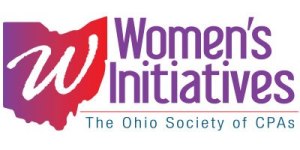Scott D. Wiley, CAE
President & CEO
The Ohio Society of CPAs
In standard association models, it’s common for strategic planning and programming to focus on the common good; that is, where can we move the needle on behalf of a majority of our members or a significant faction of them fairly quickly?
That model has sound business implications because associations, like for-profit companies, have limited resources, making a targeted approach absolutely crucial for achieving results that members or stakeholders can point to when it’s time to join or renew.
But we also know that membership in The Ohio Society of CPAs is largely a personal, one-to-one decision in terms of what we offer of value to you, a CPA who might be working in any number of industries or disciplines across Ohio.
And that’s where I think The Ohio Society’s sweet spot is – striking that critical balance between being focused and strategic so we continue to drive the CPA profession and Ohio business environment forward while serving the important needs of individuals who rely on us as a resource for their career.
To that end, your Executive Board has begun the process of identifying what we believe are the top opportunities to move the needle on behalf of the profession over the next several years. That process kicked off in August at the Executive Board retreat, and out of that emerged four broad-based areas of focus we think are the right direction for our future. These are:
Knowledge: OSCPA will be a leading source for ideas, tools, and resources for the accounting profession.
Learning: Those in the accounting profession will attribute their enhanced performance to OSCPA’s learning experiences.
Advocacy: Ohio’s legislative and regulatory climate is favorable to business and the finance community, and the role that CPAs play in advancing the public interest is recognized as valuable.
Community: OSCPA will be a preferred community of value for CPAs and those who engage with the accounting profession.
Over the next several months, the Board and staff will undertake a strategic planning process to identify specific strategies and initiatives that fall into each of these domains. We will be aligning our priorities and lines of business around emerging issues that are directly affecting CPAs today and over the next 3-5 years.
The goal will be to build on OSCPA’s past successes while ensuring we are remaining relevant to growing segments of members who are the future of the profession. This includes young CPAs, women and other currently underrepresented populations. This will be important as we seek to widen our reach and impact for CPAs everywhere.
Bottom line, we want to be the preeminent resource and professional society for all CPAs in Ohio. That means we’ll need to change, and for the better. I look forward to bringing you news of our progress as we embark on this important journey. And I hope you’ll join us as we build the OSCPA of tomorrow for you.



 Posted by jrieman7
Posted by jrieman7 





